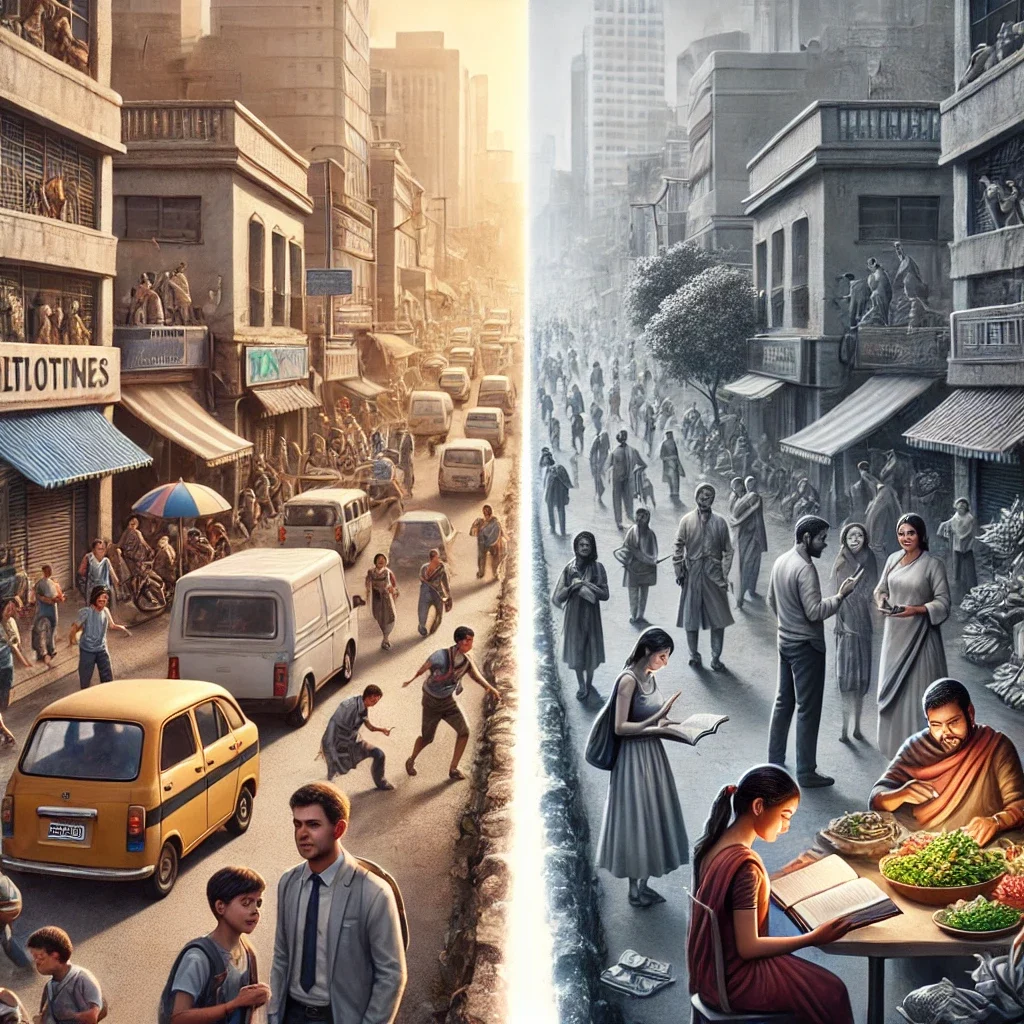
When we look at the social dynamics in countries like South Asian countries, certain behaviors and attitudes raise important questions. Why don’t people often greet others warmly or engage with a smile? Why is the crime rate steadily rising? Why do many find comfort in the idea of happiness after death rather than focusing on improving their current lives? Why do some resort to exploiting the weak, choosing unethical shortcuts to earn money rather than pursuing a more creative and fulfilling path? Interestingly, many rely on divine intervention or wait for a hero to solve their problems instead of taking action themselves.
In my view, the answers to these questions lie within the questions themselves. These challenges are deeply rooted in the societal mindset and long-standing cultural habits that have shaped people’s behaviors over generations.
A Culture of Struggle and Emotional Distance
In many developing countries, survival often takes precedence over personal well-being. This can explain why many people don’t engage in friendly greetings or offer a smile—it’s difficult to exude warmth when burdened by daily struggles. Facing economic hardships, corruption, and social inequalities can leave individuals emotionally distant. The rise in crime can be seen as a response to desperation and frustration with a system that doesn’t seem to reward honesty or hard work. When faced with limited opportunities, people may turn to unethical means as a way to survive or get ahead.
Finding Hope in the Afterlife
Many people turn to religion and the promise of an afterlife as a source of hope, particularly when life’s challenges seem insurmountable. In environments where daily life is filled with struggles, people may see the present as beyond their control, placing their faith in the future after death. While spirituality offers comfort, it can also promote a passive acceptance of injustice, leading to inaction in the face of adversity. The belief that happiness lies in the afterlife can cause people to tolerate their current difficulties rather than striving for change in the here and now.
The Cycle of Exploiting the Vulnerable
It’s a sad reality that, in some cases, people choose to mistreat or exploit those who are weaker than them. This often stems from their own feelings of powerlessness. When individuals feel unable to control their own circumstances, they may try to exert control in destructive ways, leading to harmful behavior toward others. This is often a reflection of frustration with the lack of opportunities or outlets for emotional and social growth.
The Temptation of Shortcuts
For some, taking shortcuts—no matter how unethical—seems like the only option when the legitimate paths to success appear too difficult or blocked by systemic obstacles. When the effort to achieve success through honest means doesn’t seem worth the reward, people may be tempted to seek the easy way out. Unfortunately, a widespread belief in fate or divine assistance can reinforce passivity, as many people wait for a hero to solve their problems instead of taking responsibility for their own actions and futures.
Education: A Gateway to Opportunity, Not Just a Job
Another common issue is the way education is often viewed—as simply a tool to secure a job. In many cases, people see education as a means to an end, reducing it to just a path to employment. This mindset overlooks the true purpose of education: personal growth and enlightenment. When embraced fully, education equips individuals with the knowledge and creativity to explore countless avenues for building a fulfilling life. Rather than treating education as merely a step toward a job, we should see it as a way to unlock the potential to lead a rewarding life and discover endless opportunities to earn a living while contributing positively to society.
The Road to Change: Honesty and Personal Responsibility
So, how do we break this cycle of frustration, passive acceptance, and unethical behavior? The first step is to honestly recognize the current situation and confront the realities of life without avoiding or denying them. Real progress begins with personal responsibility, both in our thoughts and actions. Rather than blindly following societal norms or relying on the guidance of so-called gurus, it’s essential to listen to our own minds and trust our inner instincts.
Taking Initiative Instead of Waiting for a Savior
Many people are caught in the mindset of waiting for a hero to solve their problems, but this only perpetuates inaction. Real change happens when individuals take charge of their own lives and actively work toward their goals. Every person has the capacity to be their own hero by embracing hard work, integrity, and a commitment to ethical and creative solutions. In the end, it is through honesty, self-awareness, and personal accountability that we can create a better future—one step at a time.